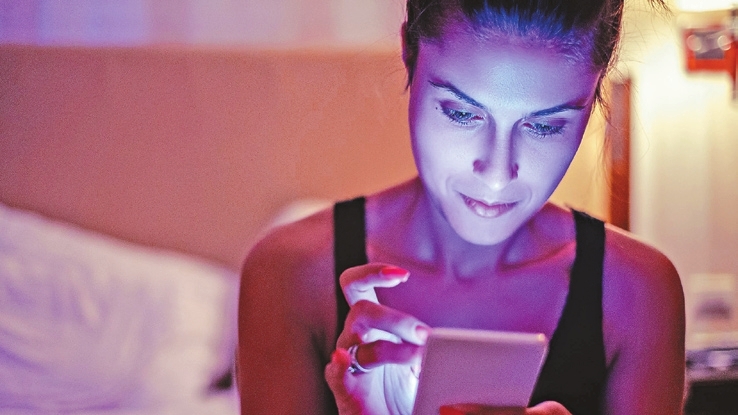
HEALTH experts have known about digital eye strain for a while, and the potential for all that blue light from digital devices to do eye damage. But can screens damage your skin, too? Blue light, part of the spectrum of visible light, is a high-energy, short-wavelength light (not to be confused with UVA or UVB rays), says Shari Marchbein, clinical assistant professor of dermatology at New York University School of Medicine. The main source of the blue light we’re exposed to is the sun, according to the American Academy of Ophthalmology. However, we also get a significant dose from our screens and indoor lighting. “One of the reasons that blue light has become a concern is that High Energy Visible (HEV) light, which typically refers to blue wavelengths on the visible light spectrum, not only comes from sun exposure but also from computer screens, cell phones and other digital devices,” Marchbein explains. Blue light has been reported to contribute to eye strain as well as cataracts, glaucoma, and other eye diseases. But blue light isn’t all bad. “Blue light plays a critical role in maintaining good health, as it regulates our body’s circadian rhythm — our natural sleep-wake cycle,” says Meenakashi Gupta, an assistant professor of ophthalmology at the Icahn School of Medicine at Mount Sinai in New York City. “Blue light also elevates mood and helps memory and cognitive function.” Research on how blue light affects your skin is ongoing, but what dermatologists know so far doesn’t look good. One small, peer-reviewed study of the effects of blue light on the skin, published in the Journal of Investigative Dermatology in 2010, found that exposing skin to the amount of blue light we get from the sun caused more pigment, redness, and swelling than when the same person’s skin was exposed to comparable levels of UVA rays. “Dermatologists have good evidence to show that visible light triggers certain skin conditions, such as melasma, where the skin is stimulated to produce more pigment,” says Marchbein. “There’s also evidence that as blue light penetrates the skin, reactive oxygen species are generated, which leads to DNA damage, thereby causing inflammation and the breakdown of healthy collagen and elastin, as well as hyperpigmentation.” “The more time we spend on our devices, the worse off our skin might be,” says Marchbein. To prevent that potential damage, Marchbein recommends sunscreens with iron oxide and antioxidants in the ingredient list, which will help to protect the skin from blue light rays. You can lower the brightness level on your screens to 50 percent or go on the darker “Night Shift” setting. Just don’t dim it so much that you’re straining your eyes. (SD-Agencies) | 
